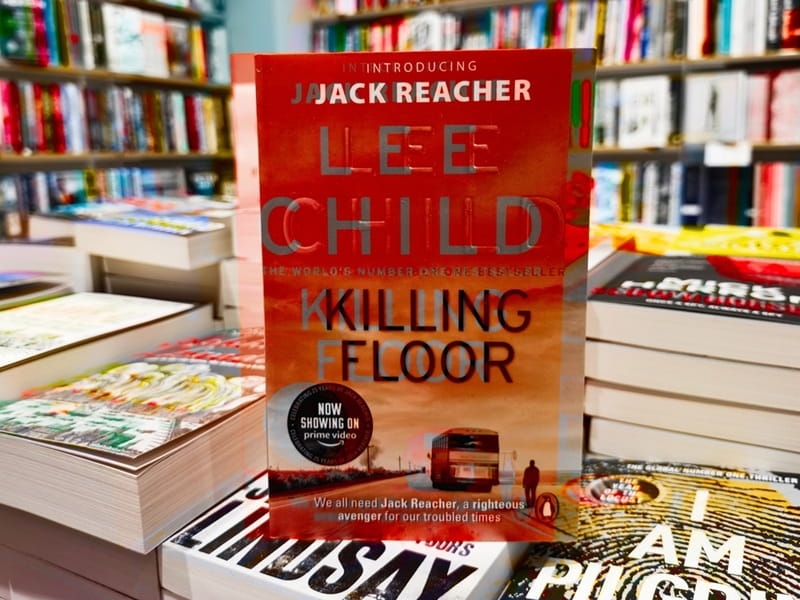Best Science Fiction Books You Must Read This Year

Last summer, I got into a reading rut. You know the kind-stack of books on the nightstand, none of them actually getting read. Then, on a lazy Sunday afternoon, I cracked open a slightly dusty copy of The Left Hand of Darkness by Ursula K. Le Guin. Three pages in, I was gone. Hooked. Obsessed. That one book kicked off a sci-fi binge I didn't know I needed-and changed the way I read forever.
That's the thing about the best science fiction books. They're not just about aliens or time travel. They're about what it means to be human-wrapped in starships, dystopias, or parallel universes. Whether you're a lifelong space nerd or just testing the sci-fi waters, there's something in this genre that'll grab you and not let go.
Let's dive into the must-read science fiction novels that critics, authors, and casual readers alike can't stop talking about. And don't worry-we're skipping the robotic listicle vibes. This is your no-fluff guide to books that spark curiosity, twist your brain, and maybe, just maybe, blow your mind.
Why Science Fiction Hits Different?
In general, sci-fi gets a bad rap. For years, it was pigeonholed as "nerd stuff," full of technobabble and little green men. But anyone who's read Kindred, Neuromancer, or The Dispossessed knows better.
Science fiction stretches imagination while holding up a mirror to the real world. It asks: What if? What if AI could feel? What if climate collapse already happened? What if gender wasn't fixed? No other genre pushes those boundaries quite like this one.
And when done right? It's not just entertaining-it's downright haunting.
Award-Winning Heavyweights: The Must-Reads of Right Now
Here's the thing about keeping up with sci-fi-it evolves fast. What felt cutting-edge five years ago might already feel quaint. So if you're looking for the best-selling science fiction books that are making waves right now, start here.
1. Some Desperate Glory by Emily Tesh
War. Identity. Queer themes. Space. This book has everything-and it doesn't shy away from the messiness of human emotion. It's bold, tightly written, and deeply weird (in the best way).
2. System Collapse by Martha Wells
If you haven't met Murderbot yet, where've you been? This is the latest installment in the beloved series about a sarcastic security android who'd rather watch soap operas than follow orders. It's dry, it's sharp, it's oddly emotional.
3. In Ascension by Martin MacInnes
Part ecological sci-fi, part existential slow burn. Think deep-sea exploration meets cosmic discovery. It's a slow, immersive read-but oh man, it lingers.
These aren't just trending-they're redefining what must-read science fiction novels look like in the 2020s.
Subgenres You'll Actually Want to Explore

Not all sci-fi is space opera. And thank the stars for that.
Let's break down a few subgenres that are dominating shelves and TikTok book recs alike:
1. Climate Fiction (Cli-Fi)
The planet's melting? Let's write about it. Think The Ministry for the Future by Kim Stanley Robinson or New York 2140. It's hard, sobering stuff-but necessary.
2. Sci-Fi Mysteries
Murder. Space. Ethical dilemmas. Enter Leviathan Wakes, the first in The Expanse series-a political thriller in orbit. Or try The Echo Wife by Sarah Gailey for a twisty domestic clone drama.
3. Sci-Fi Horror
Let's be honest: space is terrifying. Dead Silence by S.A. Barnes brings haunted-house vibes to a derelict ship. You might sleep with the lights on. Worth it.
4. Afrofuturism
Blending African culture, history, and futuristic vision, Afrofuturism is one of the most exciting spaces in sci-fi right now. Who Fears Death by Nnedi Okorafor? A gut punch in the best way.
These subgenres make sci-fi feel personal. Less about saving the galaxy, more about saving ourselves.
A Quick Trip Through Time: Classic Sci-Fi Books That Still Hold Up
Before we go forward, let's rewind. These are the classic sci-fi books that built the genre-and still hit hard, decades (or centuries) later.
1. Frankenstein by Mary Shelley
Yeah, it's from 1818. Yeah, it's got old-timey language. But it also asks a question we're still wrestling with: just because we can create life, should we?
2. The Time Machine by H.G. Wells
The OG time-travel story. Short, sharp, and weirdly political. Bonus: it's public domain, so you can probably read it for free.
3. Childhood's End by Arthur C. Clarke
Aliens arrive. Humanity changes forever. That's all we'll say. The ending will either break your heart or rewire your brain.
4. The Left Hand of Darkness by Ursula K. Le Guin
Gender fluidity, political intrigue, icy planets, poetic prose. It's a masterpiece, plain and simple.
These top sci-fi books of all time didn't just entertain-they paved the way for everything we read today.
Expand Your Knowledge: Best Space Fiction Books & Interesting Facts About Space
Expert Recommendations You'll Actually Trust
There's something kinda magical about getting book recs from someone who lives and breathes sci-fi. The authors, critics, and genre historians on sites like Five Books don't just rank stuff-they explain why it matters.
Some patterns we've noticed in expert picks:
- A strong leaning toward philosophical themes
- Preference for literary style alongside techy ideas
- An obsession with Ursula K. Le Guin (valid)
These aren't algorithm-made lists. They're curated by people who've read deep. So if you're tired of the same five booktok recs, start here.
New Voices Changing the Game
Let's hear it for the new kids.
These authors might not (yet) be on every "best-selling science fiction books" list-but give it time.
1. Rivers Solomon
Queer, Black, brilliant. Their books (An Unkindness of Ghosts, The Deep) are rich, layered, and fiercely original.
2. Cadwell Turnbull
The Lesson blends alien invasion with colonialism and island culture. It's a slow burn, but the aftertaste? Intense.
3. Temi Oh
Do You Dream of Terra-Two? is part astronaut drama, part coming-of-age story. Plus, it asks: what would you leave behind for a new planet?
We're not just talking representation here. These authors are cracking the genre wide open-playing with structure, centering new voices, and refusing to stick to the "rules."
Your Next Move:
- Pick one book from each category-classic, subgenre, and new voice.
- Don't be afraid to DNF (did not finish). Sci-fi is broad. Your book is out there.
- Read with curiosity. Judge less. Explore more.
Because honestly? There's no wrong way to fall in love with sci-fi. There's just starting. And if this post did anything, I hope it helped you do exactly that.
Also Check Out: How to Read More: Top Tips to Read Faster, Retain More?
Final Thoughts: Sci-Fi Isn't Just a Genre. It's a Mirror
Here's what no one tells you when you start diving into sci-fi: eventually, it stops feeling like fantasy.
At some point, a story set 200 years in the future will hit you right in the gut because it feels like now. A robot will say something eerily human. A world will crumble in ways that feel all too familiar. And you'll sit there thinking: "Wow. I've been that character."
That's the real power of the best science fiction books. They entertain you, sure. But they also sneak into your thoughts when you're cooking dinner or scrolling your phone, asking quiet, persistent questions.
And sometimes, those questions change how you see the world.
This content was created by AI





